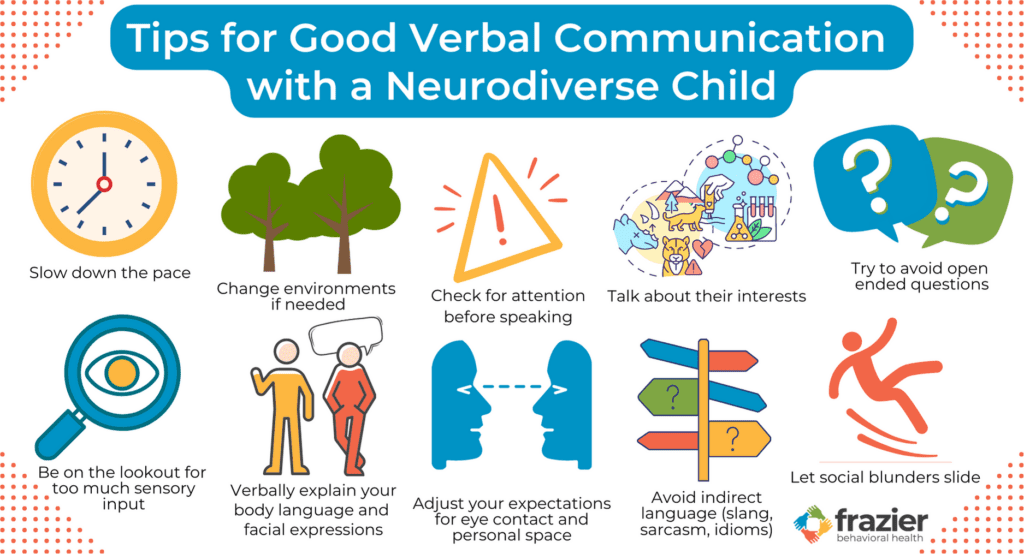You may have heard of the term “pragmatic language” or “social language” before. But what exactly does that mean? To help explain, we will talk about what pragmatic language is and why we care about our children’s pragmatic language skills.

What is pragmatic language?
Pragmatic language can also be referred to as social language. It encompasses the social language skills that we use on a daily basis to interact with others around us. This can include how we say things, as well as the nonverbal cues that we convey as we communicate with others. Additionally, it can consist of our use of eye contact, facial expressions, body language, intonation of voice or even conversational skills, such as the ability to stay on topic during a conversation.
Why are pragmatic language skills important for an individual to have?
Pragmatic language skills are important for being able to effectively and appropriately interact with others in social exchanges. These skills allow us to effectively communicate our messages and gain and maintain relationships with others. These subtle, nonverbal cues that are second nature to us and make social interactions appropriate may be difficult for neurodiverse children to grasp.
How can families help develop pragmatic language skills at home?
First, it is important to provide many models, or examples, of using appropriate social language skills with others in the home. Children being able to see appropriate social skills can be one of the most helpful ways to pick up on and develop their own appropriate social skills.
Additionally, reading social stories to your child can also be helpful for developing these skills. Social stories narrate the ways in which a child should appropriately and effectively interact and socially engage with others. For example, a social story may directly discuss what a child should say during conversations with friends or what their body language should look like during interactions.
Meet your children where they are when sharing social affection!
It is also important to note that we should always meet a neurodiverse child where they are currently regarding social skills. For example, while some people may be comfortable with a friendly hug, this may be very uncomfortable for a neurodiverse child to accept. Family members can prepare others with information on the kind of affection and social interaction their neurodiverse loved one is most comfortable with. So, a neurodiverse child may be more comfortable with a high five or fist bump when receiving affection instead of a hug.

How can Frazier Behavioral Health help?
If there are ever any concerns for pragmatic language or social language difficulties for your child, a speech-language pathologist can help! Speech therapy services would be a great resource to seek out. In individual therapy sessions, speech-language pathologists can conduct a speech and language assessment to look at all of your child’s speech and language skills, including social language skills and how they interact with others. Speech-language pathologists can look into what language and social areas may be strengths for your child or what areas they may be having difficulty with. From there, a speech-language pathologist can give recommendations for fostering growth in social skills and social language.
In addition, at Frazier Behavioral Health, we offer an early communicators and caregivers group. This group offers a six-week course for caregivers and children 15-30 months of age. The speech-language pathologists will support and counsel caregivers or parents as they themselves engage with their own children. This group’s goal is to foster early communication skills and language development, which can include pragmatic language skills.
Frazier Behavioral Health is dedicated to delivering evidence-based, individualized therapy for children and adults with behavioral, physical, social, communication, and sensory issues. Our mission is to assist these individuals in becoming their best selves and create enhanced outcomes at home, at school and in the community. Contact us today to learn more.


